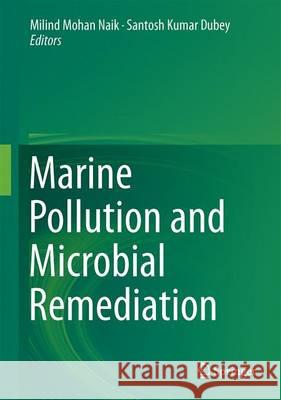Marine Pollution and Microbial Remediation » książka
Marine Pollution and Microbial Remediation
ISBN-13: 9789811010422 / Angielski / Twarda / 2016 / 270 str.
Marine environment is the largest habitat covering approximately 70% of the total earth surface. Oceans are the main regulatory agent of earth s climate and harbour a huge diversity of living organisms. Marine environment provide a unique ecological niche to different microbes which play a significant role in nutrient recycling as well as various environmental activities. However with rapid industrialization, urbanisation, ship trafficking and mining activities enormous amounts of waste including heavy metals, hydrocarbons, chemicals, dyes, organic load, agriculture waste, pesticides, antifoulants (e.g. tributyltin) and bacterial pathogens have accumulated in marine/estuarine environments over several decades and pose a serious threat to marine macro and micro biota and humans and therefore require special attention. However some natural marine microbes are known to possess diverse resistance mechanisms and degradation pathways to variety of toxic pollutants and these unique characteristics of marine/estuarine bacteria proved to be an ideal tool in bioremediation of contaminated marine and estuarine environmental sites. Reclamation of marine polluted environments using marine microbes has been found to be effective, affordable and ecofriendly technological solution over conventional physical and chemical methods.Objective of this book is focus on marine pollution and application of marine microorganisms in cost effective and ecofriendly methods of pollution abatement."











